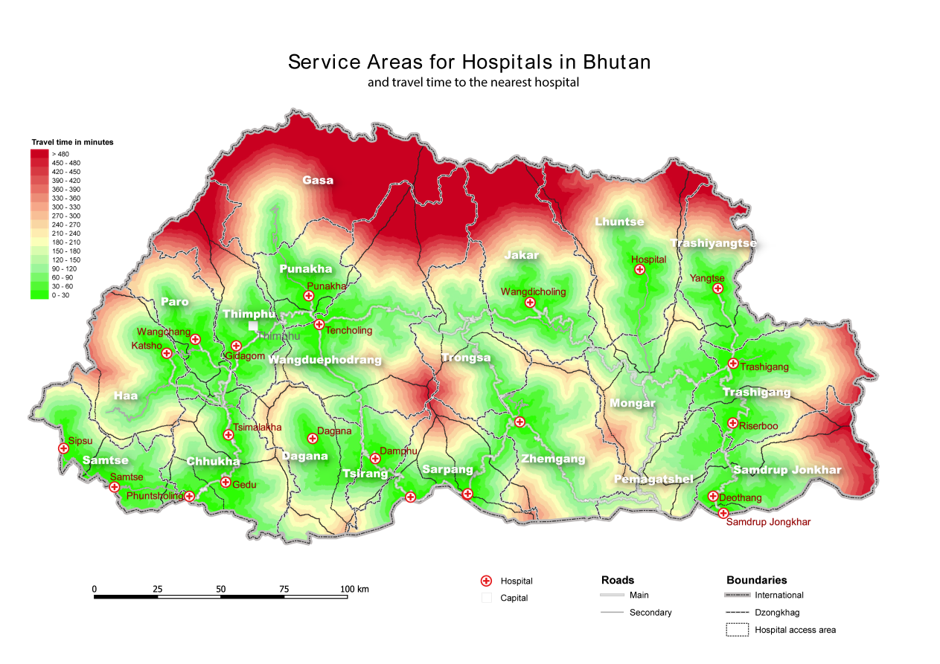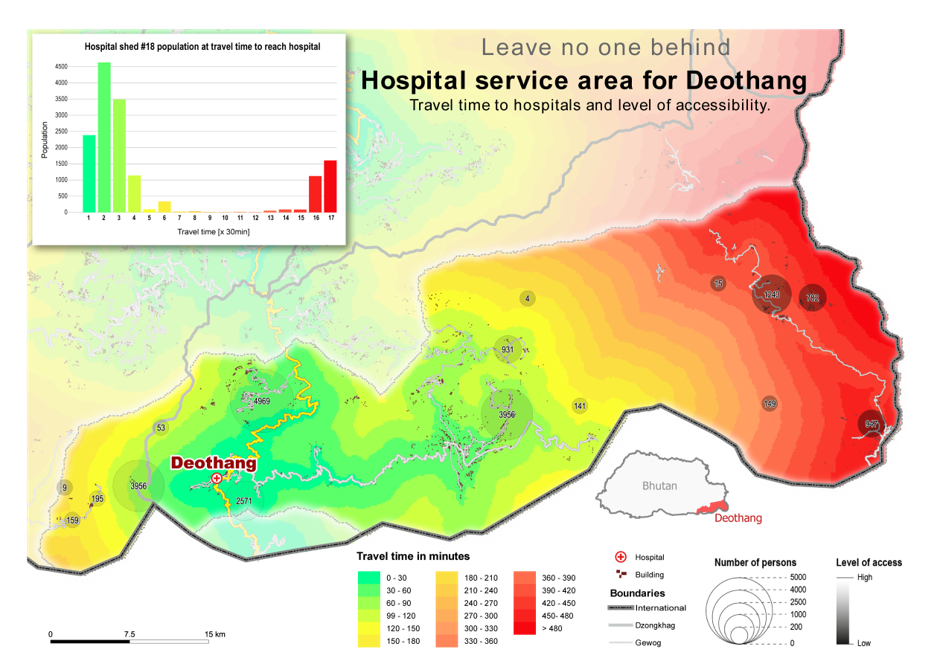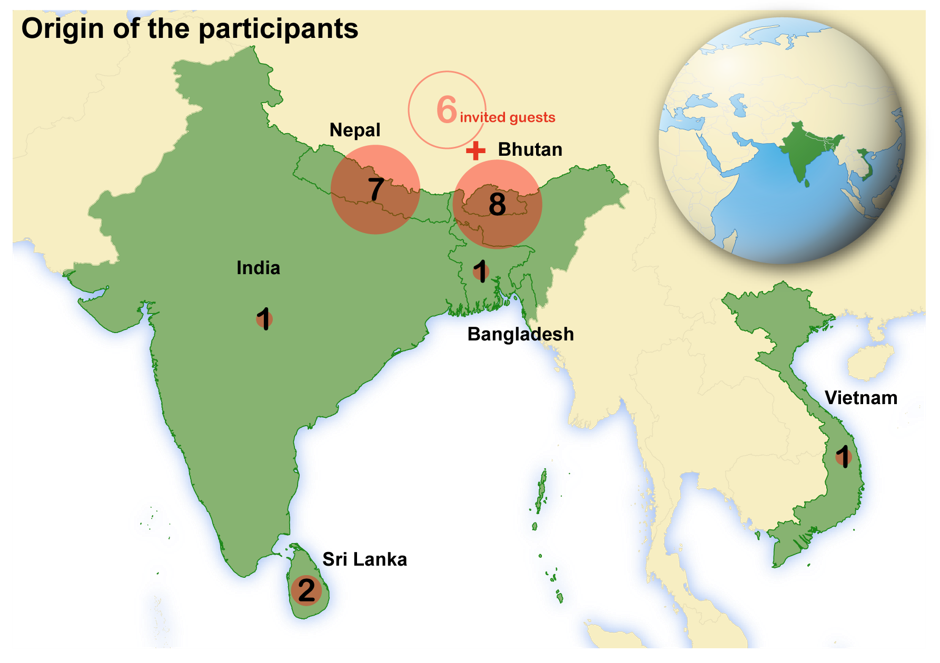Where the sky touches the earth, in the land of the Dragon, namely in the small Kingdom of Bhutan, we had the pleasure of organizing the Nuffic-sponsored Refresher course “Leave no one behind: quantification and mapping of SDG indicators that identify the most vulnerable in today’s society.” The course took place the end of 2019.
The in-country professionals responsible for monitoring such indicators need to understand how they are defined, how data can be collected to assess them, and how to produce information on them that supports policy-makers in the pursuit of improving the indicator scores. In many cases, maps and associated tables can tell the immediate story and are the best candidate to do so.
In this two-weeks course, the attendants learned how to make such information products, including maps. We based the course on a data workflow developed and kindly provided by colleague Andy Nelson. That workflow was fine-tuned to the Bhutan case (higher resolution, more topography sensitive), and expanded to include the creation of policy support documents. Generally, the course provided a quality boost in professional data practice. The hands-on training (and supported lectures) equipped the participants with methods that can be adopted by their organizations, and allow introduction to management and staff. Our choice of SDG indicators was such that work on other indicators can follow similar routines, that is, the course attendants obtained a good understanding of the examples and can apply these as templates to follow.
|
Fig 1: The course focused on accessibility of the main hospitals. Is the current distribution such that from any point in the country travel time to a hospital is within an acceptable range? |
The course was designed in such a way that it followed the logic of an information production path: define what you want to know; collect and assess the data; process the data; visualize the outcome. To keep all involved and on track, four project groups were formed. On a regular basis these groups had to report results. Didactically challenging was the use of the R environment, with which few participants had been acquainted. Our approach was on learning to (1) read and understand, (2) change code to need, (3) dig for documentation, and (3) fear no experiment. This approach seemed to have impact …
|
Fig 2: How many people have a low level of access to the hospital |
This Refresher course took place in Thimphu, the capital of Bhutan. The local arrangements for participants (flights, transport, accommodation, food) were all taken care of by the National Land Commission Secretariat, who was also the host for this course. We continue to have a wonderful working relationship with NLC. For the organization of a field trip and the participation in the course, the Royal University of Bhutan was invited to join. The course went really very smooth and all participants were pleased and happy to have joined it.
“The course was very much intense and useful to our day to day life. I was amused because I got to work training with our own Country data and learned a lot. Overall, Training was perfectly prepared both Organizer and participants in everything. Lastly but not the least that I am looking forward to grab the chance to get this source of training very soon in future.” (Tenzin Lhamo).
At the end of the course, an alumni gathering was organized and eventhough not all alumni could make it on time the evening was well received and very much appreciated. There is promise in a course like this, and we are interested in conducting it again!
In this course there were 26 participants, from which 20 were funded by Nuffic. Six staff members from NLCS were invited as guest; they were selected by the host. The registered participants all came from Bhutan (8) and its neighbouring region: Nepal (7); India (1); Bangladesh (1); Sri Lanka (2); Vietnam (1). |
|
Refresher courses are tailor-made training courses funded by Nuffic initiated by a Dutch institution or by Holland alumni. The courses contribute to the institutional development of the alumni's employing organisations and prolong the impact of the original training. |
More recent news
 Mon 19 Jan 2026Monitoring Infrastructure from Space: From ITC to an International Career
Mon 19 Jan 2026Monitoring Infrastructure from Space: From ITC to an International Career Tue 15 Apr 2025Remote Sensing of Maize Intercropping
Tue 15 Apr 2025Remote Sensing of Maize Intercropping Wed 20 Mar 2024Best Paper Award for Phd Candidate Néstor De La Paz Ruíz
Wed 20 Mar 2024Best Paper Award for Phd Candidate Néstor De La Paz Ruíz Wed 31 Jan 2024Exploring Future-Proof Education in Thailand
Wed 31 Jan 2024Exploring Future-Proof Education in Thailand Thu 9 Feb 2023Meet our new ITC Student Association Board (2023)
Thu 9 Feb 2023Meet our new ITC Student Association Board (2023)




